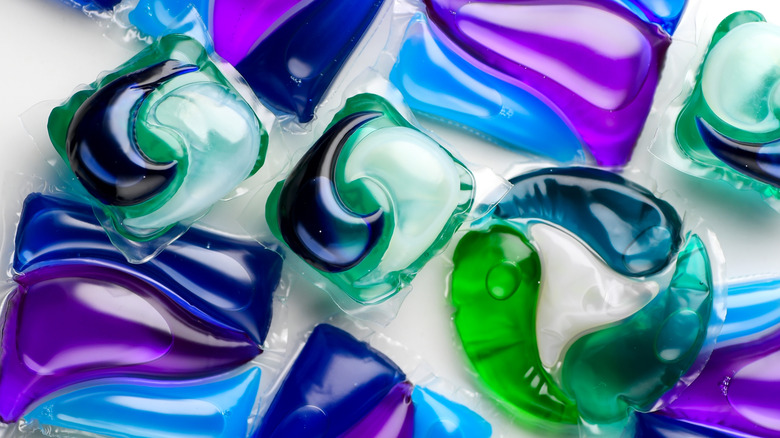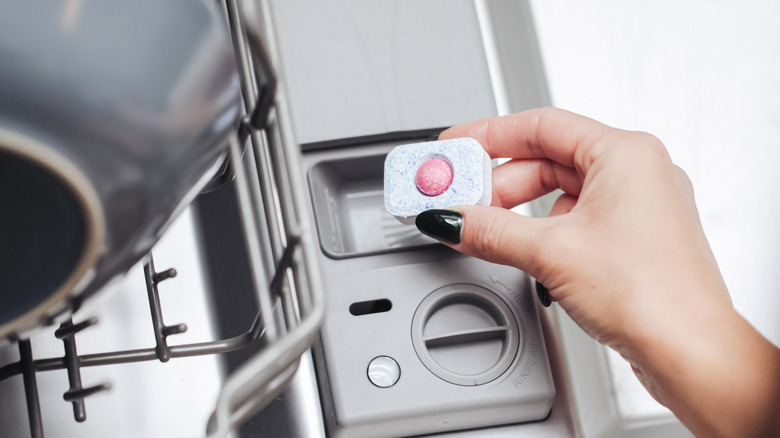Do Plastic Dishwasher Pods Fully Break Down?
At first glance, dishwasher pods seem like an easy win because there's no messy powder, no measuring, no getting wrinkly fingers; just toss one in and press start. Heck, you could even use them for cleaning more than just dishes. The small packets are coated in a film called polyvinyl alcohol (PVA), a synthetic polymer designed to dissolve in water. The keyword here is "dissolve."
When the dishwasher runs, the PVA film breaks apart, releasing the detergent inside. Manufacturers emphasize that the film is water-soluble, and the American Cleaning Institute states that PVA is biodegradable under the right conditions, which is why the pods have become such a common household item. But dissolving in your dishwasher doesn't guarantee the plastic disappears entirely.
According to a 2021 study by the International Journal of Environmental Research and Public Health, though PVA has shown the ability to break down with the right microbial mix, wastewater treatment plants aren't always optimized for this process. Some systems may even allow dissolved polymers to pass through without fully breaking down. That means residues of PVA could flow into rivers, soil, or the ocean. And though it's not technically a microplastic, environmental experts argue that it can behave like one if it lingers in ecosystems without complete decomposition. The concern isn't necessarily about immediate toxicity but rather about long-term accumulation in our open waterways. So in the end, PVA packaging works as promised in your dishwasher, but what happens after it leaves your home remains less certain — and that uncertainty has sparked debate about its real environmental footprint.
What this means for consumers and possible alternatives
For everyday shoppers, one of the great dishwasher debates is about rinsing dishes (or not) before loading; however, another concerns pods versus powder versus liquid, highlighting the gap between convenience and sustainability. Pods are super easy to use, and the dissolving wrapper is supposed to feel like a solution to single-use plastic waste. While those residues may persist in the environment in ways that scientists are still studying, you don't have to get rid of your pods entirely — but it's worth considering the bigger picture. You might feel tempted to choose dishwasher pods over tablets for their cleaning power, portability, and other advantages; you just need to decide if it's worth the potential environmental impact. Plus, there are also a good number of benefits associated with using plastic-free dishwasher pods. The biggest advantage is that many of these pods are nontoxic, using only natural ingredients.
However, traditional powdered or liquid detergents skip the PVA film altogether, and some eco-brands now sell detergent sheets or tablets packaged in compostable or paper-based wrappers. These alternatives give you the same cleaning power without leaving behind plastic polymers. Until research provides clearer answers about how much PVA makes it through treatment intact, anyone looking to shrink their plastic usage may want to switch things up for a while. Small changes, like swapping to refillable detergent bottles or trying newer plastic-free products, can add up when combined with broader industry changes in packaging design, like Aldi, which was expected to make a big change in 2025 by switching to entirely reusable, compostable, or recyclable packaging.


